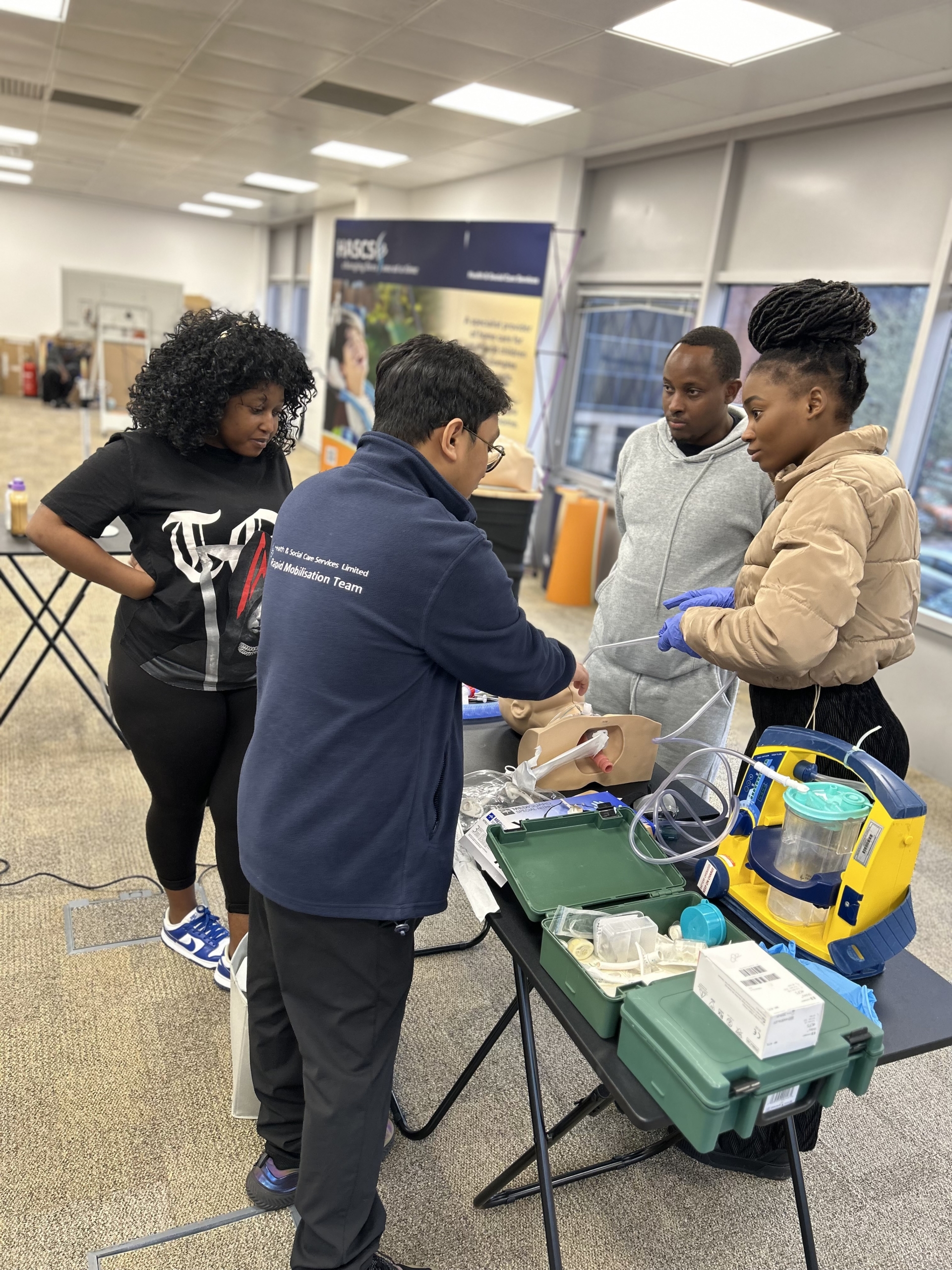Motor Neurone Disease
Motor Neurone Disease (MND) affects the nerves in the brain and spinal cord. These nerves, called neurons, tell the muscles what to do. With MND, messages from your nerves gradually stop reaching the muscles, leading them to weaken, stiffen and deteriorate. The symptoms of MND start gradually and progress at varying speeds, dependent on the individual.

Specialist MND support in your own home
As MND progresses, you might notice, you, a family member, or a friend struggling with speaking, swallowing, breathing or other motor functions. Additional support may be necessary for tasks like managing feeding tubes and ventilation care, which family members may not always be able to provide around the clock.
Drawing from a wealth of experience and knowledge we make it a priority to understand your care needs and work alongside you to develop a bespoke package of care allowing you and your family to live as full and meaningful a life as possible, supporting your wishes and aspirations.

Latest insights
Apprenticeships: Our investment in the complex care industry
Our stories
From Healthcare Assistant to Registered Nurse with HASCS
Your kind words
Your work ethics and the vision of your company is what it should be. You clearly love what you do and the team have so much respect for your hard work. You all will always be our family.
Family of client | South West, UK
Your kind words
Health & Social Care Services Ltd have made such a huge difference to our family’s quality of life. After many years of continuous stress and battling to get the care that our disabled son desperately needed, to have an acceptable quality of life – it feels like we have suddenly ‘landed’!
Family of client | South West, UK

Our Stories
Children’s Care to Adult Care: A Path to Independence
Latest insights
New to Complex Care? A Comprehensive Guide for Beginners
Complex Care Solutions
Understanding Motor Neurone Disease
MND is a complex disease and whilst the needs of those living with MND may be similar, each individual experience is different. We can help to ensure the care and information you receive is relevant to your needs.
Symptoms of MND
Symptoms of MND develop gradually and may not be obvious at first. It can be difficult to diagnose in the early stages as there are other conditions that cause similar symptoms.
Early symptoms could include:
- Weakness in your limbs and a weakened grip
- Muscle cramps or twitches
- Slurred speech or difficulty swallowing
- Weight loss, particularly muscles that have become thinner and weaker
Moving around, swallowing and breathing can become increasingly difficult. Over time treatments like a feeding tube or ventilation support may be needed. MND is life-limiting, but each person’s experience with MND will be different. How long it takes to progress varies from person to person, it is possible to live for many years following diagnosis, some even living with MND for decades.
If you notice any of the symptoms of early, speak to your GP, getting a correct diagnosis as early as possible can help get you the care and support you need.
Living with and managing MND
Here at HASCS, we adapt to the progressive symptoms that come with MND, ensuring that your needs and wishes are met at every stage of your condition.
HASCS handles end of life, or palliative care, with dignity and respect. We have years of experience supporting service users living with MND. We’ll help you and your loved ones discuss your options and will be there to guide you through the entire process if you require.
As a nurse-led service, be confident in the advice and care you receive from us. Speak to one of our care professionals today for a commitment free chat.
Helpful Resources
The MND Association is a charity providing support to those living with MND. You may find their website useful if you have recently been diagnosed, or are supporting someone with MND- https://www.mndassociation.org/support-and-information/information-resources
Referrals
Speak to our care professionals for comprehensive care solutions tailored to your needs.
We welcome referrals from case management teams, local authorities, NHS Trusts and integrated care boards, charities as well as directly from the home and family. Upon referral, our team will contact you, where they can talk you through the entire process and guide you through each stage, as well as answering any questions you may have.

